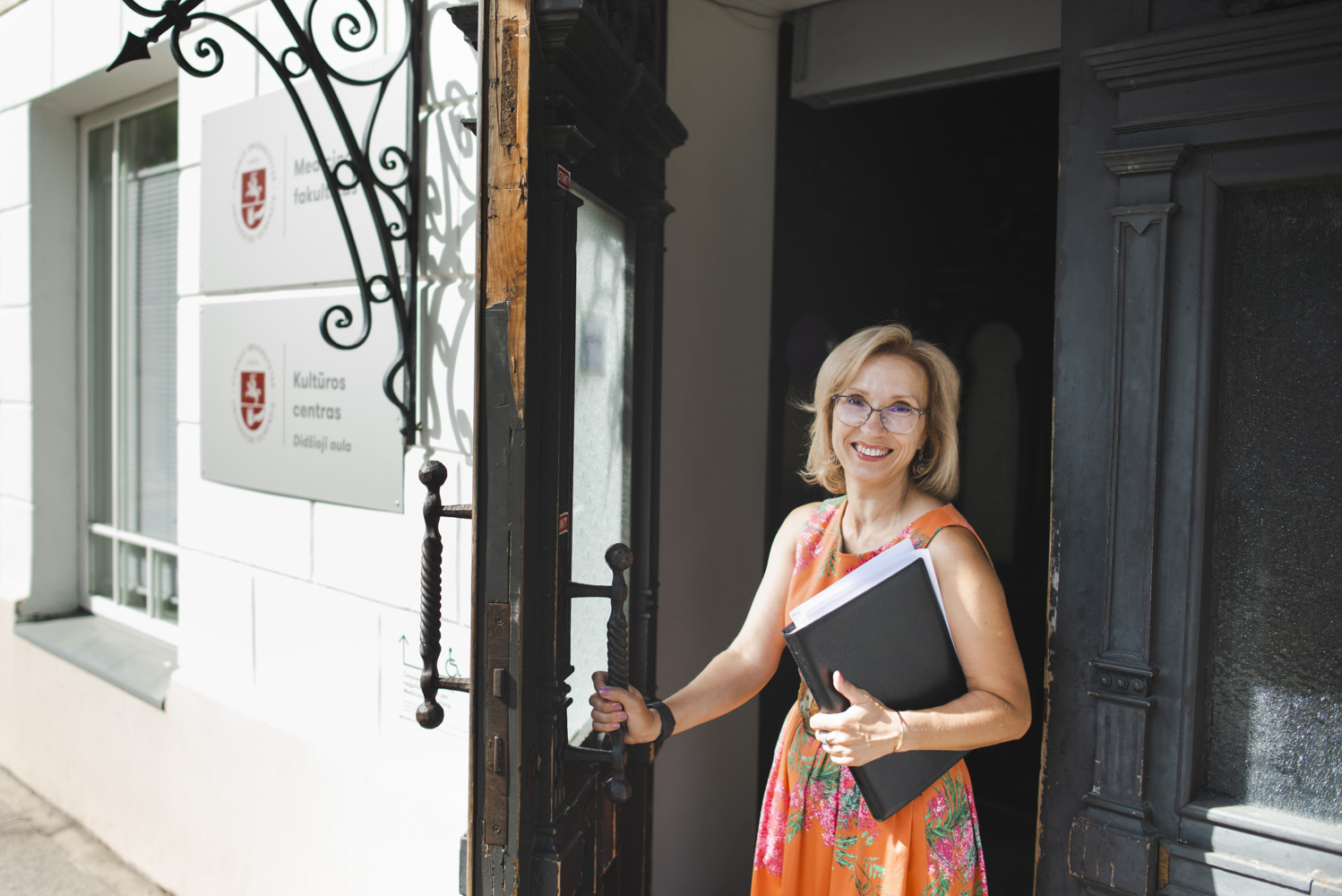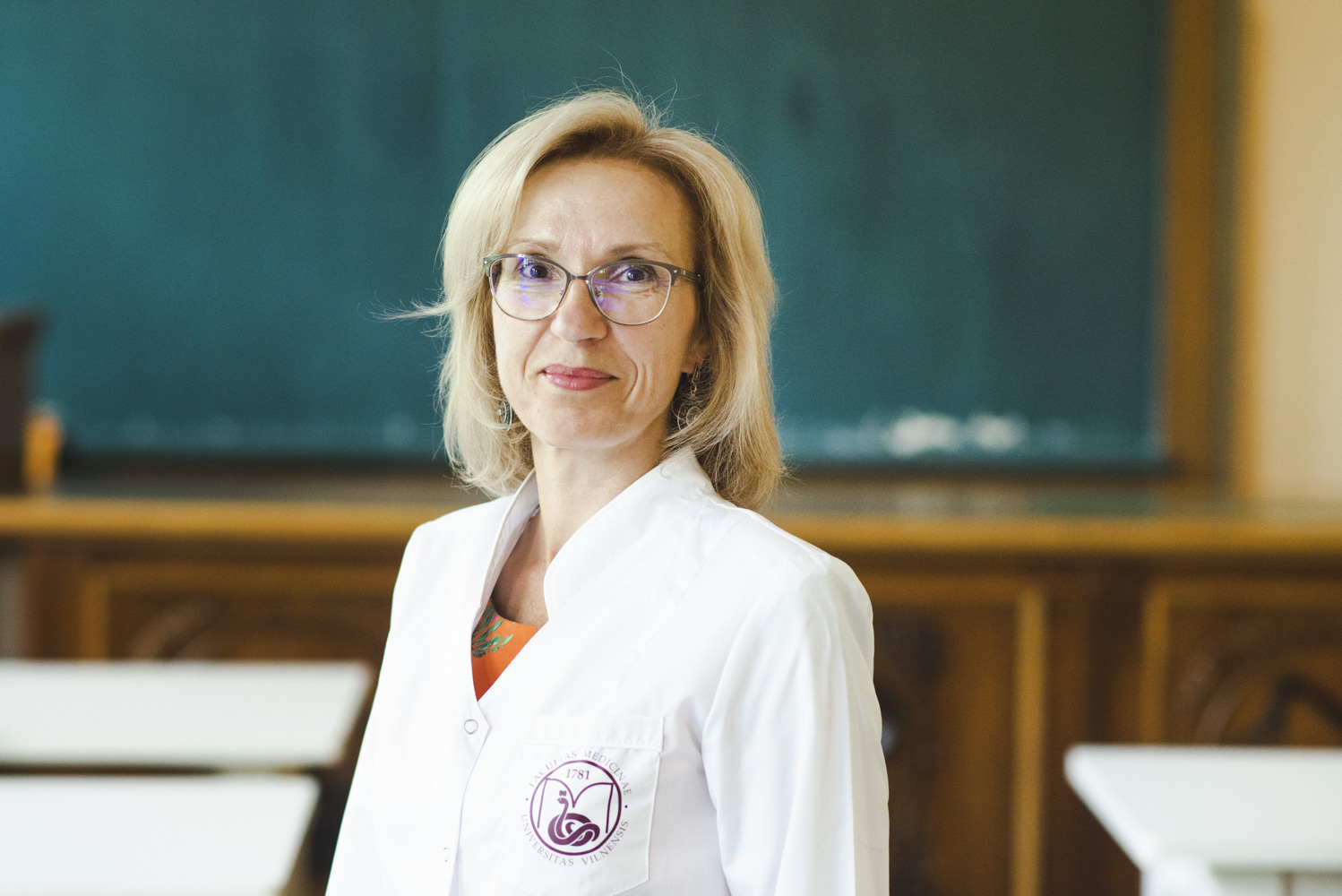
How will we begin the new academic year? What study programmes have attracted the most interest this year? Why are the study programmes offered by the Faculty of Medicine (MF) so attractive to international students? What are the implications of the evaluation of study programmes for the faculty and what changes can we expect in the academic year 2022-2023? These and other questions were discussed in conversation with Prof. Vaiva Hendrixson, Vice-Dean of MF Studies.
Has the interest shown in study programmes at the Faculty of Medicine changed this academic year when compared to previous years?
I would say that the interest has not changed a great deal—the Faculty of Medicine has always been one of the most popular faculties, and there is an active interest in both Lithuanian and English language study programmes. This year, as in the past, the most popular study programmes are Medicine and Dentistry. Nursing and Physiotherapy programmes were also popular, as well as the joint Master of Arts in Art Therapy programme in collaboration with the Lithuanian Academy of Music and Theatre. It is pleasing to note that this year’s Master’s degree programme in Systems Biology, taught in English, has attracted great interest.
Usually, most international students find out about studying in English by contacting intermediary agencies. This year, however, we received an exceptionally high number of applications from so-called ‘independent’ applicants. This was indeed quite surprising, since the last few years have been especially difficult, with the COVID-19 pandemic and then Russia’s war against Ukraine. Understandably, this caused a lot of anxiety among students, and we were expecting a much smaller than usual number of international students. However, we actually received a very large number of applications—over 300. Of course, not all applicants met the admission criteria for the MF. Some of the applicants were not sufficiently prepared academically, so this year, slightly fewer students were invited to study Medicine and Dentistry, in English, than last year.
So, how many first-year students are you expecting at the Faculty of Medicine this year?
A good question, and a difficult one. Every year we admit a similar number of first-year students, but at the same time the number of students in the MF is constantly increasing. Perhaps this is because in recent years, completely new study programmes have opened their doors, such as Optometry. Everybody is probably wondering how many first-year students we will have this year. I can tell you a secret: this year, in the Medical Studies programme, we will welcome 195 first-year students. We are also looking forward to 51 Pharmacy and 20 Dentistry freshmen. We have a large number of future nurses too—110—and we are also expecting 62 Physiotherapy, 42 Optometry and 30 Public Health freshmen.
Master’s studies will also be well attended, with 142 new postgraduates across all programmes at the MF. And we cannot forget our international students. At present, 93 students have been admitted to study Medicine, and 17 to Dentistry, both taught in English. These numbers may still change a little, and we will only see how many students from abroad will arrive on September 1st, when they arrive at the celebration and sign their study contracts. So, after calculating and summarising, we can expect to start the academic year welcoming almost 800 new members to our academic community. An impressive number!
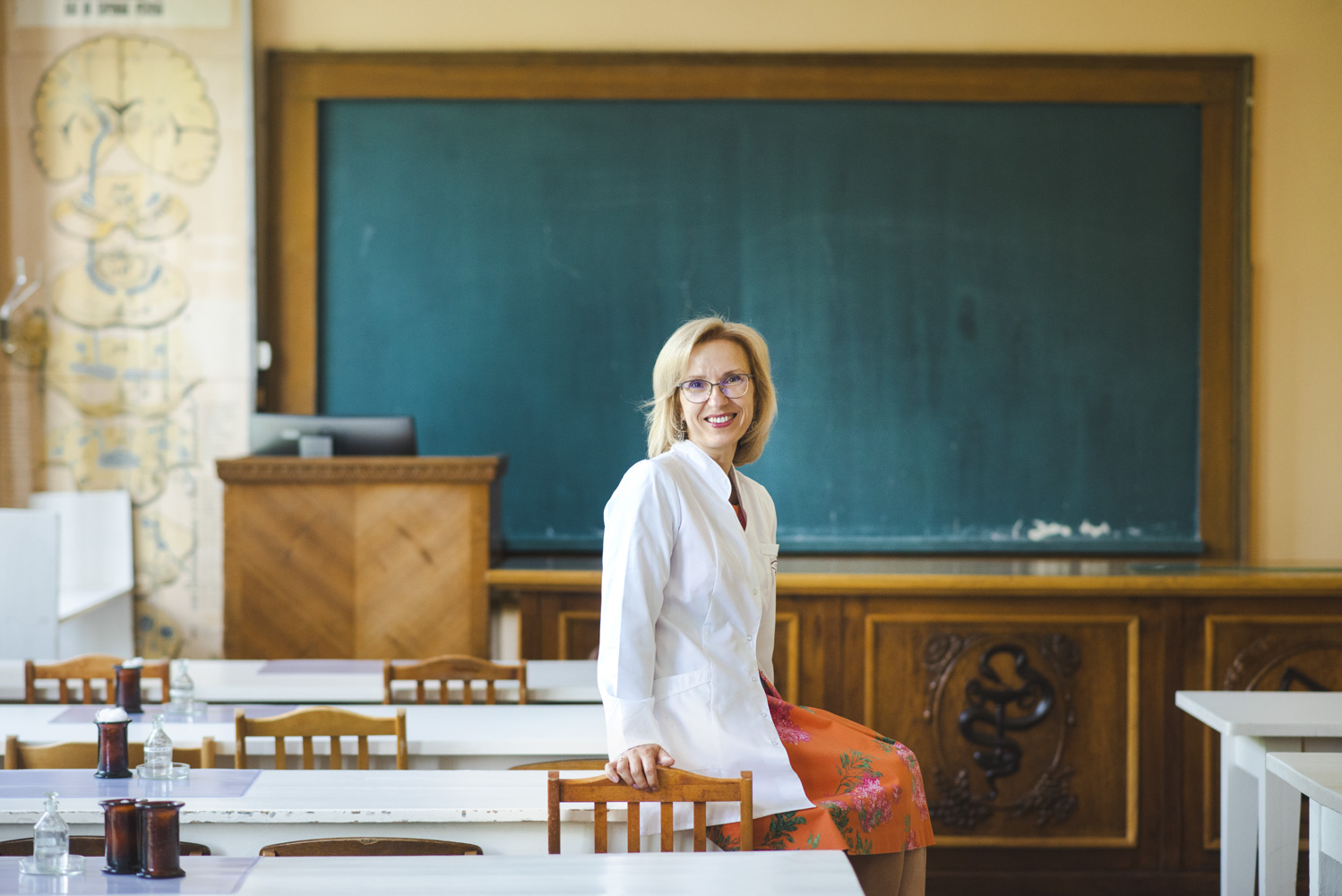
This academic year, Ukrainians will be amongst the English-speaking students. Is that correct?
Just after the war started, we accepted five students from Ukraine to study medicine and one - to study dentistry. In September this year, 15 Ukrainians will begin their Medical studies and a couple will begin their dental studies at the MF. Vilnius University has made, and continues to make, great efforts to help Ukrainian students, lecturers and researchers affected by the war. Each faculty contributes by giving Ukrainians the opportunity to study the programmes they have chosen or to continue with the studies they started in their home country. I should mention that the MF will cover the majority of the tuition fees for Ukrainian students. As you know, studying in English at the MF is expensive, and the financial support for studies that is provided by the state to Ukrainians fleeing the war, amounts to only half of the tuition fee.
It is important to note that not only Ukrainians, but also internationals studying in Ukraine apply to the faculty to continue their studies in Lithuania. Currently, in Ukraine, even in bombed areas, studies are in many cases continued remotely. We are therefore committed, together with other European universities, to accepting, where ever possible, some of the international students studying in Ukraine for a year as part of the mobility programme. Together with other European universities, we have decided to mobilise and help our Ukrainian colleagues to keep their study programmes running, otherwise Ukrainian universities will be doomed to close down.
Why are the study programmes offered by the MF so attractive to international students? What makes students choose to study at VU MF rather than other universities?
We have noticed a pleasing trend in recent years, where citizens from abroad have increasingly chosen to study at the VU MF on a full-time basis, based on the recommendations of their compatriots who have already studied here. The positive words about the faculty have spread widely, both through social networks and by word of mouth.
Interestingly, the satisfaction levels of international students with their studies at the faculty is actually higher than that of Lithuanians studying here. It is hard to say why this might be, but I would say, that the fact that we care very much about all students (both national and international), is not empty words. I know of many examples where universities in other European countries, positioned higher in the rankings than Vilnius University, often cannot boast of such an individual approach to the student and support for them. In our faculty, almost all doors are (literally) always open, students are welcome and consulted. I think this attitude and flexibility, helps the faculty a lot in terms of attractiveness.
Another advantage of the faculty is small groups. Students also consider the positive relationships with lecturers as an advantage of studying at VU MF. I would like to especially thank the academic and non-academic staff, who work with students in a culturally aware, patient, dedicated, and loving way. Of course, as in every family, there are all kinds of challenges. Sometimes, you can hear a harsh word or have an argument. But constructive discussions in professional life are welcome and lead to consensus. It is gratifying that our students are mature, motivated, ambitious and responsible, open to change, make constructive suggestions, and are involved in all governance activities of the faculty.
It is true that sometimes it is argued that foreign citizens choose the MF of Vilnius University because of the attractive tuition fees. However, it is worth noting that in other European countries, such as Germany, studies are free. Therefore, it is not correct to say that students choose to study at the faculty simply because it is cheap. Meanwhile, internationals studying in Ukraine do not have the option of choosing a university where they can continue their studies temporarily. Ukrainian universities are approaching all European partners who might temporarily host their students for part-time studies. In the name of solidarity, we, together with other universities, are responding to this request for help.
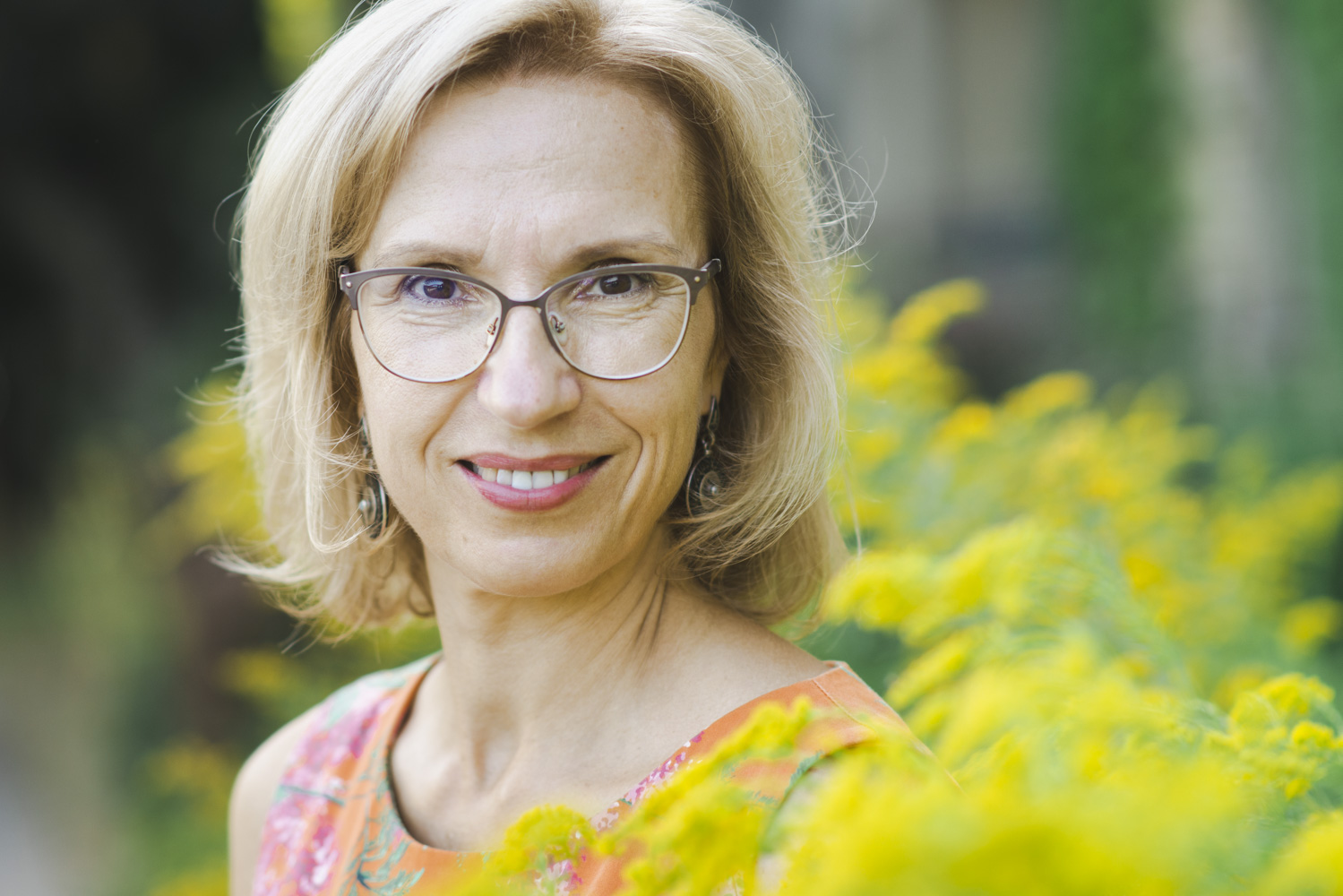
An external evaluation of study programmes is currently underway. What are the implications for the faculty? What is there to be happy about?
External evaluation of the fields of study takes place every six years. It is a process that helps ensure the quality of our studies. Some of the study programmes at our faculty already have self-assessment documents prepared, for some other study programmes they are in the process of being prepared. These are the documents by which we evaluate our study programmes and provide information to the Centre for Quality Assessment of Studies. The next stage is when international experts (external evaluators) come to the faculty to assess the quality of the programme, talk to the self-assessment team, the administration, lecturers, students, alumni and social partners. If the programme is rated poorly, it is only allowed to run for three years. During this period, it must be improved and evaluated again by external evaluators. If the programme is evaluated negatively, it will be closed.
I am proud to say that the MSc programme, Systems Biology, run by MF in cooperation with the Faculty of Mathematics and Informatics and the Life Sciences Centre, has just successfully passed the external evaluation procedure with the highest rating from international experts. My sincere thanks to the excellent work of the Systems Biology study programme committee, the lecturers and current and former students! A self-assessment of the Dental and Public Health fields of study is currently being prepared, and the self-assessments of the Medical and Rehabilitation fields of study have been submitted to the Centre for Quality of Studies.
It is important to note that in late autumn we should expect a visit from an international team of experts to evaluate the medical field. This evaluation will be very important for the MF and for the whole educational system that trains doctors in Lithuania, because during the external evaluation, experts from the World Federation for Medical Education (WFME) from the USA will visit Lithuania. They will observe the work of the Centre for Quality Assessment of Studies (CQAS) and decide whether the higher education institutions that train medical doctors in Lithuania (VU MF and LSMU) are adequately developing and assessing the clinical skills of students. This is a double challenge for us, and we want to be particularly well prepared for the assessment process of medical studies.
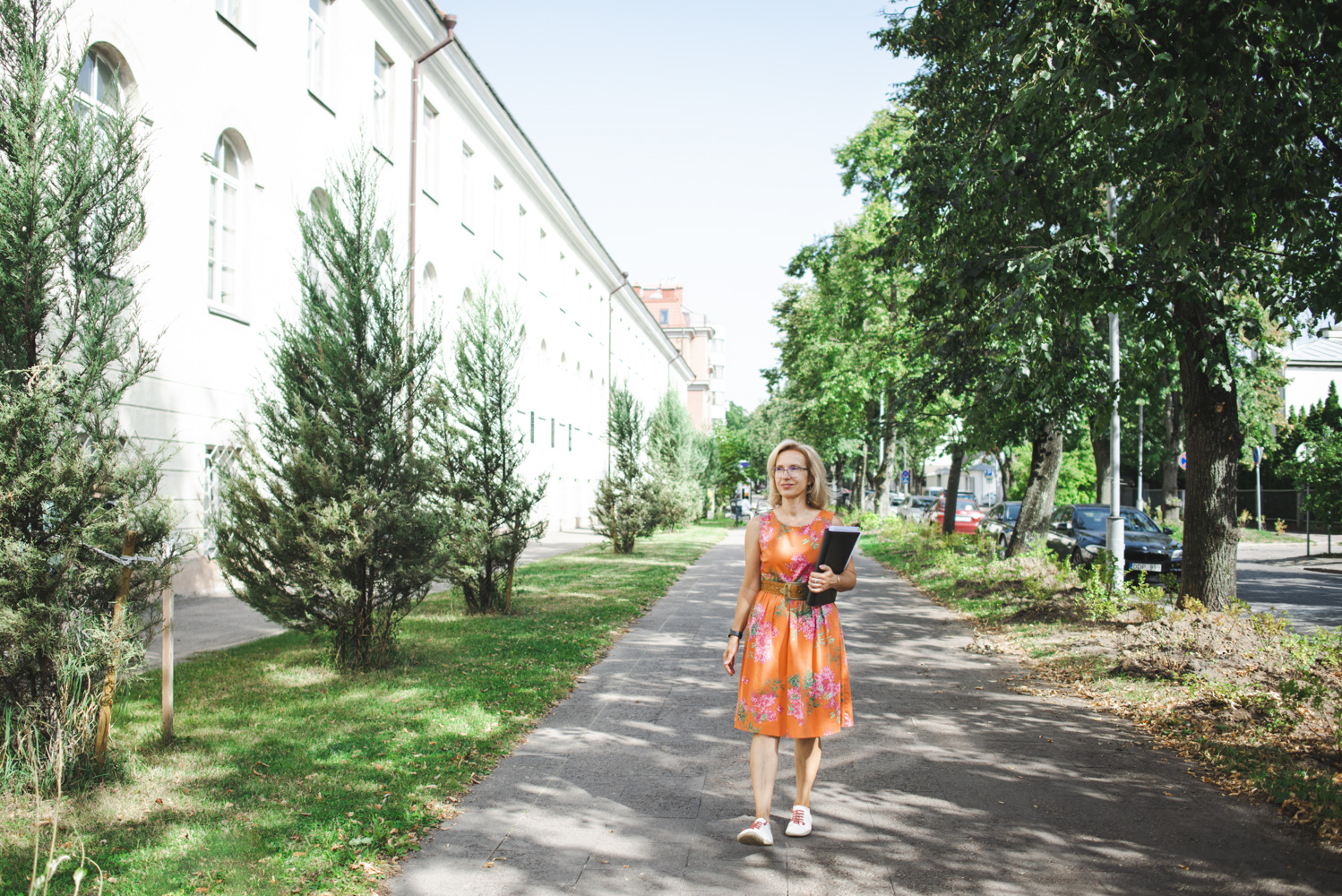
What other changes can be expected at the faculty in the new academic year?
There have always been and will always be some changes. Changes mean we are active and moving forward. Without change, we would not be a vibrant, ambitious research and education institution, but a stagnant swamp. They say that you cannot wade into the same water twice. And so, we are moving purposefully forward in the flow of daily change. I won’t hide the fact that sometimes we have to go against the tide. Anyone who follows the life of the faculty will confirm that over the last three years, a wide range of changes have taken place: the construction of the Science Centre has been launched, simulation classrooms have been built, new study spaces have been created, special attention has been paid to strengthening the development of students’ clinical skills (with more hours of practice in healthcare institutions), the base of the legal documentation regulating studies has been updated, the position of the study advisor has been upgraded, and a number of other significant works have been achieved. This year, we want to focus more on depth and quality than on expansion. Let us all hope that some scourge such as COVID-19, monkey pox, or whatever, will not strike this year and that we will all be able to work in peace. (laughs)
I would like to take this opportunity to express my delight with the community of the MF. Despite a difficult year, we have accomplished many meaningful things together. I would like to wish that the community continues to be as united as a fist—focused, constructive, discussing. I thank each and every one of you for your dedication, patience and love. I am convinced that if you work with love, it is possible to “cross the sea” and “climb any mountain”. Of course, life has its challenges—you get tired and existential questions arise—what is it all for, and why? One thing I can say about myself is that I have always been and will always be a faculty person. I have always been and will always be a “cheerleader” for the faculty. I must admit that I have had more than one occasion in my life to change jobs, to leave, to change faculty. I do not regret that I stayed. It may sound banal, but I am not afraid to admit, that I love my Alma Mater, I love my students, I love teaching, I enjoy the colourful community of the faculty— all the interesting and creative people.
This academic year will be a year of change in the sense that the top administration of the faculty will change, the Dean will change, and there will probably be team changes. As I am a great believer in teamwork, I would like to wish the new Dean the ability to mobilise the community, and to listen and motivate them to work together for the benefit of the faculty. And to the faculty community—students, lecturers, researchers, non-academic staff, administration—I would like to wish you a fun, creative, meaningful, fulfilling and successful new academic year!
Is it true that you are planning to run for the position of Dean of the Faculty of Medicine?
Good question! (laughs) Let’s wait until 9 September and see. I would like to create some intrigue.
